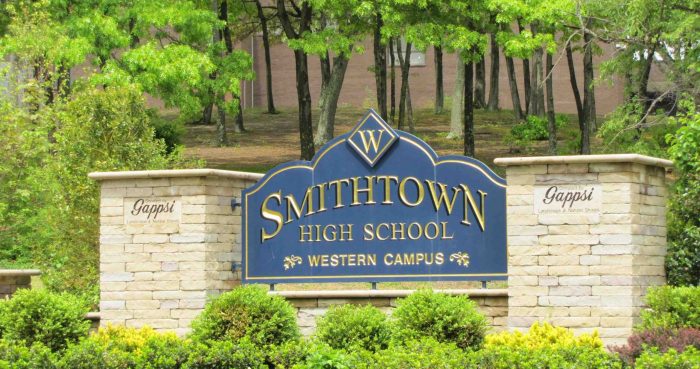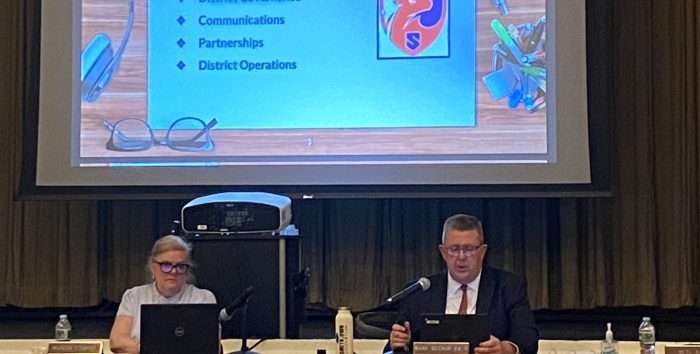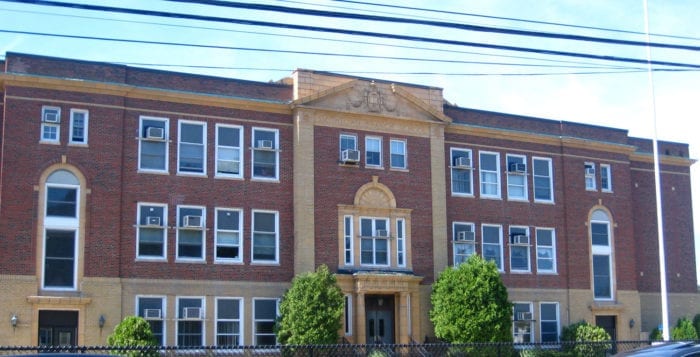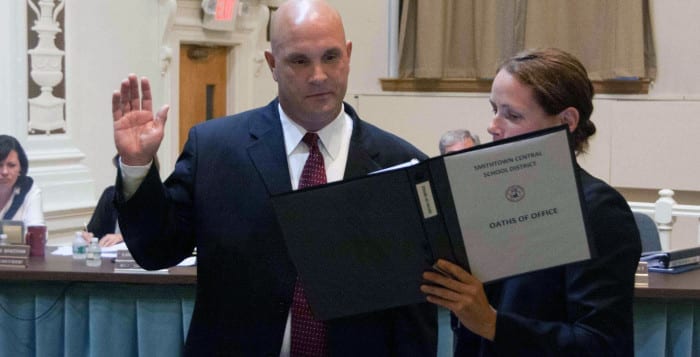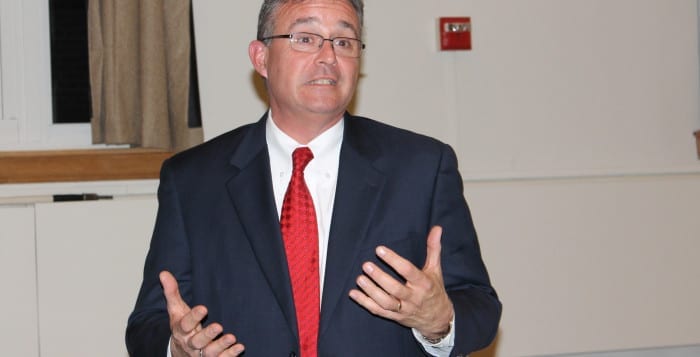By William Stieglitz
With three Smithtown Central School District Board of Education seats up for election on May 20 — two needing to be filled by new people due to term limits and the third due to a resignation — two trios of candidates are running to fill the spots. TBR News Media spoke with both slates of candidates about their experience and vision for the district.
One group includes Bernadette Ackermann, who works as vice president of marketing for a software firm and previously served as the Tackan Elementary Parent Teacher Association president; Theresa Donohue, a 23-year educator with experience as a teacher, assistant principal and curriculum coordinator and currently as a central office administrator; and Brandon Solomon, a real estate project manager, PTA Council delegate and the husband of a Smithtown elementary educator. All three are endorsed by the teachers’ union.
The other group includes Karen Wontrobski-Ricciardi, who served as board vice president from 2021 to 2024 and beforehand worked within the PTA; Al Carfora, who works in insurance and is experienced negotiating bids with contractors; and Mike Simonelli, a retired Suffolk County police officer and author of “Justified Deadly Force and the Myth of Systemic Racism: The Facts Everyone Must Know.” All three have expressed that they don’t want the board fully controlled by those the teachers’ union backs.
Budgeting
Ackerman, Donohue, Solomon: Solomon and Ackerman both emphasized their professional experience managing multimillion-dollar budgets, with Solomon saying how, if elected to the board, they should be “stretching every dollar we have.” Ackerman said it was also important to avoid unnecessary expenses, like “lawsuits between board members,” which she said happened five times in the period from 2021 to 2024, “all because there were certain people on the board who couldn’t get along.”
Wontrobski-Ricciardi, Carfora, Simonelli: Simonelli, citing his time as a financial analyst officer in the military, argued the district should aim to reduce spending in a manner akin to the federal government. “We saw just recently with DOGE, they found fraud, waste and abuse in every agency they went to. So I believe we need a similar look.” He also stated that there could be funding issues if Smithtown and New York State “fight President Trump’s executive orders declaring all of that [DEI] should be coming out of the Department of Education.”
Bullying and mental health of students
Ackerman, Donohue, Solomon: Addressing bullying, according to Donohue, starts with upholding and building upon “The Smithtown Promise,” which promotes dignity, belonging, respect and ambition for students. She cited social media as a major factor and said limiting its use in schools helps reduce bullying proactively.
Solomon said another helpful factor is the district partnership with Northwell Health, which provides students with priority services for mental health. “It’s very important that that continues,” he said, “because bullying is an issue. Like Theresa said, it doesn’t go away when you go home, and people need help. And when they need help, they need it right away.”
Wontrobski-Ricciardi, Carfora, Simonelli: Simonelli stated he has seen depression and suicide rates go up despite there being “more mental health training and consideration being given in schools” than he’s ever seen and suggested “there’s a cultural thing going on that needs to be addressed by the families.” Wontrobski-Ricciardi made a similar statement, saying, “there is just a ton of support in place for our students’ mental well-being. And I think it’s great. It should be. But there are some fear mongers that will let you believe that there isn’t enough in place.”
Diversity, equity and inclusion
Ackerman, Donohue, Solomon: “For me,” said Ackerman, “it’s paramount that every student, regardless of race, gender, sexuality, socioeconomic status, is welcome and supported and made to feel safe in Smithtown schools.” She said that while the politicization of DEI has made it harder to achieve these goals, for her, “it’s basically making all students feel welcome and supported in every way — in terms of emotional [and] educational whether or not they learn differently.”
Solomon also spoke on accessibility, saying, “if a student needs extra time on a test, if a student needs to take a test on a Chromebook instead of using pen and paper, I think everybody needs every opportunity they need, and I think we owe it to them.” He emphasized too that, regardless of personal opinions on DEI, it is important that the board follow state law to avoid costly litigation for taxpayers.
Wontrobski-Ricciardi, Carfora, Simonelli: All three said the district is “pushing political ideology” on students regarding topics of race, gender and sexuality and that it is coming at the expense of academics, though the district says such claims are false and misrepresent their actual focus on safety, respect and support for learning. Among the trio’s arguments that DEI and anti-police material are being pushed was the claim that the district equity team was teaching about the Black Lives Matter movement counterproductively. “This was during the height of George Floyd,” Simonelli said. “The conversations among the group were sharing anti-police stuff, talking about deadly police incidents… This is the Philando Castile shooting, Alton Sterling, Michael Brown, all these incidents that have been proven to have been justified deadly force incidents.”
Wontrobski-Ricciardi and Simonelli also expressed concerns over Smithtown Library’s inclusions of children’s books featuring LGBT characters, describing it as a matter of topics of sexuality, questioning gender and pronouns being present.
Communication and transparency
Ackerman, Donohue, Solomon: Donohue and Ackerman emphasized communication with parents as a top priority, particularly in regards to spending and the budget structure. “The district does many presentations when it comes to the budget planning,” Donohue said. “But at the same time, there’s a lot in there that’s just confusing that the normal person maybe doesn’t understand.” For Ackerman, reviewing previously discussed information is also important. “They’ll communicate something when it happens, but then it’s never discussed again,” she said, citing information on armed guards as an example.
Wontrobski-Ricciardi, Carfora, Simonelli: All three also expressed a desire to see more communication from the district. A particular concern for Carfora was in relation to the topic of potential mold in schools. “They have no answer other than trust us… we’re telling you there’s no mold,” he said, emphasizing what he called a lack of full testing. The district stated they did more testing than the third-party engineering firm they brought in suggested and that there was confusion due to circulation of outdated photos.
For more information visit the school website: www.smithtown.k12.ny.us.

